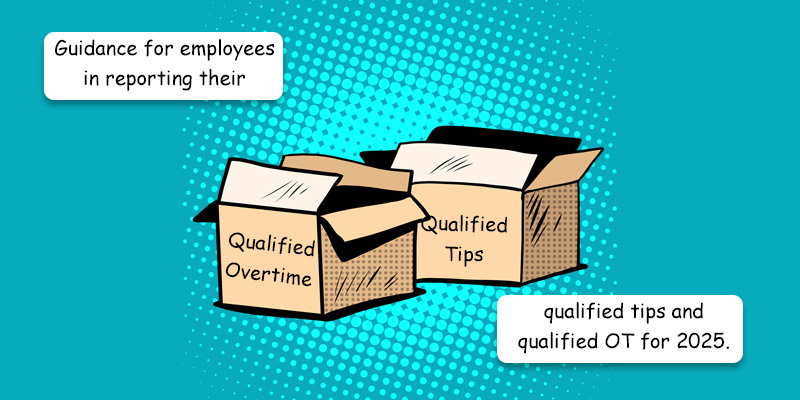Restaurants face special rules for payroll, wages and tips that set them apart from most other businesses. In few industries do customers directly help pay employee wages through tips. These rules come mainly from the federal Fair Labor Standards Act (FLSA) and state laws, and can lead to common compliance issues, if not handled carefully. Minimum wage – While the federal minimum wage is $7.25 per hour, for tipped employees who engage in an occupation in which they customarily and regularly receive more than $30 per month in tips, their minimum wage is only $2.13 per hour in direct wages,…
Posts published in “Payroll”
The Federal minimum wage has remained at $7.25 per hour since 2009, but 24 states and many cities, counties and locals have set increases effective January 1st, 2026, and a few effective during 2026. The state with the highest minimum wage is D.C. (yes, I know D.C. is not a state, but in any payroll system, D.C. is selected in the state field) at $17.95 an hour, and a number of cities within Washington state are well above $20.00 per hour. Back in the “old days” of 2012, we heard of the “Fight for $15.00” movement, and looking at the…
The IRS has recently published Guidance for Individual Taxpayers who received Qualified Tips or Qualified Overtime Compensation in 2025, Notice 2025-69, which provides direction and examples on how individuals will be able to calculate their Qualified Tips and Qualified Overtime and claim the deduction on their 2025 1040 tax return. Tax year 2025 is a transition year, due to the retroactive nature of its start and the inability of the IRS, Social Security Administration and payroll systems to implement the changes. The amounts arrived at, by the below methods, may not be 100% accurate, but it is acceptable for 2025, according…
As discussed in our earlier blog post here, the One Big Beautiful Bill Act (OBBBA) allows for a provision of “no tax” on tips and overtime. This has turned out to be a bit of a mess, as it pertains to 2025 reporting to the employees, due to insufficient time for the Social Security Administration and the IRS to make the changes to their forms to account for it. Not to mention many payroll systems were not prepared for this brand new retroactive reporting, especially as it pertains to qualified overtime. With that being said, 2025 will be treated as…
The SECURE 2.0 Act of 2022 was designed to enhance retirement savings for Americans by making it easier and more affordable to save. Each year, since the signing of this act, we have seen plan rules change, and 2026 will mark another key change in how catch-up contributions will be handled for high wage earners. The current rules state that if you are aged 50 or over, at any point during the calendar year, you can contribute an additional $7,500 on top of the regular contribution limit. The latter is also known as a catch-up contribution. For 2025, the regular…
Imagine this: You’re a small business owner in a quaint coastal town, hiring for a key position. You dot your i’s and cross your t’s, running the candidate through the government’s own verification system. It comes back clean—authorized to work. You breathe a sigh of relief, thinking you’ve covered all your bases. Then, bam! Federal agents show up and it turns out your new hire wasn’t eligible after all. Sounds like a nightmare? Well, it happened in real life, and it’s a wake-up call for anyone relying on E-Verify to stay on the right side of the law. In this…
The Affordable Care Act (ACA) went into effect over a decade ago on January 1, 2014. While we would hope that it is second nature by now, we find that for many, the year-end deadline still sneaks up on us and causes undue stress. Confucius said “Success depends upon previous preparation, and without such preparation, there is sure to be failure,” so with a little bit of preparation now, one can be ahead of the game when we get to December. Here is what can be done ahead of time: It goes, without saying, that the first step is determining…
On Independence Day, 2025, President Trump signed into law the One Big Beautiful Bill Act. This 330-page act covers a great deal, most of which will not be discussed in this article, but since it does have an impact on the payroll world, I will review pertinent items including the no tax on tips and overtime provision and the retroactive change to the Employee Retention Tax Credit. Employee Retention Tax Credit For ERTC, there will be no credit allowed for claims involving the 3rd and 4th quarter 2021, filed after January 31, 2024. This is somewhat good news, as Congress…
Many businesses are leaving valuable payroll tax credits unclaimed, missing out on significant financial benefits. Programs like the Work Opportunity Tax Credit (WOTC), Federal Empowerment Zone (FEZ) Credits and Research and Development (R&D) credit offer substantial savings, yet they often go overlooked due to lack of awareness or resources. Here’s a closer look at these credits and how your business can capitalize on them: Work Opportunity Tax Credit (WOTC) Since its introduction in 1996, the WOTC incentivizes hiring from specific groups, such as veterans, long-term unemployed and individuals receiving government assistance. The Department of Labor estimates that one in five…










